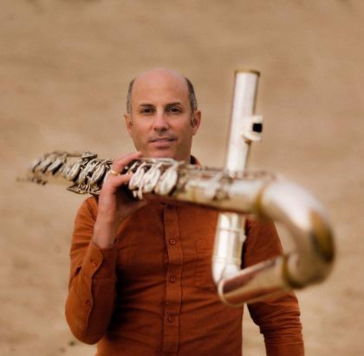This article aims to uncover the processes of developing sustainable business models in innovation ecosystems. Innovation ecosystems with sustainability goals often consist of cross-sector partners and need to manage three tensions: the tension of value creation versus value capture, the tension of mutual value versus individual value, and the tension of gaining value versus losing value. The fact that these tensions affect all actors differently makes the process of developing a sustainable business model challenging. Based on a study of four sustainably innovative cross-sector collaborations, we propose that innovation ecosystems that develop a sustainable business model engage in a process of valuing value in which they search for a result that satisfies all actors. We find two different patterns of valuing value: collective orchestration and continuous search. We describe these patterns and the conditions that give rise to them. The identification of the two patterns opens up a research agenda that can shed further light on the conditions that need to be in place in order for an innovation ecosystem to develop effective sustainable business models. For practice, our findings show how cross-sector actors in innovation ecosystems may collaborate when developing a business model around emerging sustainability-oriented innovations.

Across Dutch municipalities, unusual collaborative initiatives emerge that aim to stimulate the creation of value from municipal waste resources. Circular economy literature proposes that experimentation competences are important for developing initiatives towards circular business models and a wide range of innovation frameworks and business model toolkits have been developed to support the development of circular business models based on experimentation.However, more insight is needed to understand how experimentation contributes to the development of urban upcycling initiatives, in particular those where collaborative business models are created. Literature suggest that business model experimentation occurs differently in various collaborative contexts. For example, depending on the type of initiating focal actors involved, collaborative business models develop along different pathways Therefore, we aim to understand how experimentation occurs in various types of collaborative urban upcycling initiatives and we investigate the following research question: How do stakeholders in collaborative urban upcycling initiatives use experimentation to develop circular business models?

Students in Higher Music Education (HME) are not facilitated to develop both their artistic and academic musical competences. Conservatoires (professional education, or ‘HBO’) traditionally foster the development of musical craftsmanship, while university musicology departments (academic education, or ‘WO’) promote broader perspectives on music’s place in society. All the while, music professionals are increasingly required to combine musical and scholarly knowledge. Indeed, musicianship is more than performance, and musicology more than reflection—a robust musical practice requires people who are versed in both domains. It’s time our education mirrors this blended profession. This proposal entails collaborative projects between a conservatory and a university in two cities where musical performance and musicology equally thrive: Amsterdam (Conservatory and University of Amsterdam) and Utrecht (HKU Utrechts Conservatorium and Utrecht University). Each project will pilot a joint program of study, combining existing modules with newly developed ones. The feasibility of joint degrees will be explored: a combined bachelor’s degree in Amsterdam; and a combined master’s degree in Utrecht. The full innovation process will be translated to a transferable infrastructural model. For 125 students it will fuse praxis-based musical knowledge and skills, practice-led research and academic training. Beyond this, the partners will also use the Comenius funds as a springboard for collaboration between the two cities to enrich their respective BA and MA programs. In the end, the programme will diversify the educational possibilities for students of music in the Netherlands, and thereby increase their professional opportunities in today’s job market.

The denim industry faces many complex sustainability challenges and has been especially criticized for its polluting and hazardous production practices. Reducing resource use of water, chemicals and energy and changing denim production practices calls for collaboration between various stakeholders, including competing denim brands. There is great benefit in combining denim brands’ resources and knowledge so that commonly defined standards and benchmarks are developed and realized on a scale that matters. Collaboration however, and especially between competitors, is highly complex and prone to fail. This project brings leading denim brands together to collectively take initial steps towards improving the ecological sustainability impact of denim production, particularly by establishing measurements, benchmarks and standards for resource use (e.g. chemicals, water, energy) and creating best practices for effective collaboration. The central research question of our project is: How do denim brands effectively collaborate together to create common, industry standards on resource use and benchmarks for improved ecological sustainability in denim production? To answer this question, we will use a mixed-method, action research approach. The project’s research setting is the Amsterdam Metropolitan Area (MRA), which has a strong denim cluster and is home to many international denim brands and start-ups.
The BECEE initiative represents a transformative collaboration between four leading European HEIs—Hanze University of Applied Sciences (HUAS), Zurich University of Applied Sciences (ZHAW), South East Technological University (SETU), and Universiteti "Aleksandër Moisiu" Durrës (UAMD). Our consortium embodies the essence of BECEE and the EIT Knowledge Triangle Model because it also comprises of 4 industry partners (KPN, Eindhoven, The Netherlands, Innofuse, Zurich, Switzerland, Dungarvan Enterprise Centre, South East, Ireland, and Linda Laboratory, Durrës, Albania) bringing together partners from education, research, and business who are equally committed to collaborate on innovation action plans to fostering balanced collaborative entrepreneurship ecosystems in our respective regions. This consortium, therefore, is strategically designed to pool diverse strengths, creating a synergetic force for innovation and entrepreneurship that transcends the capabilities of any single organisation.